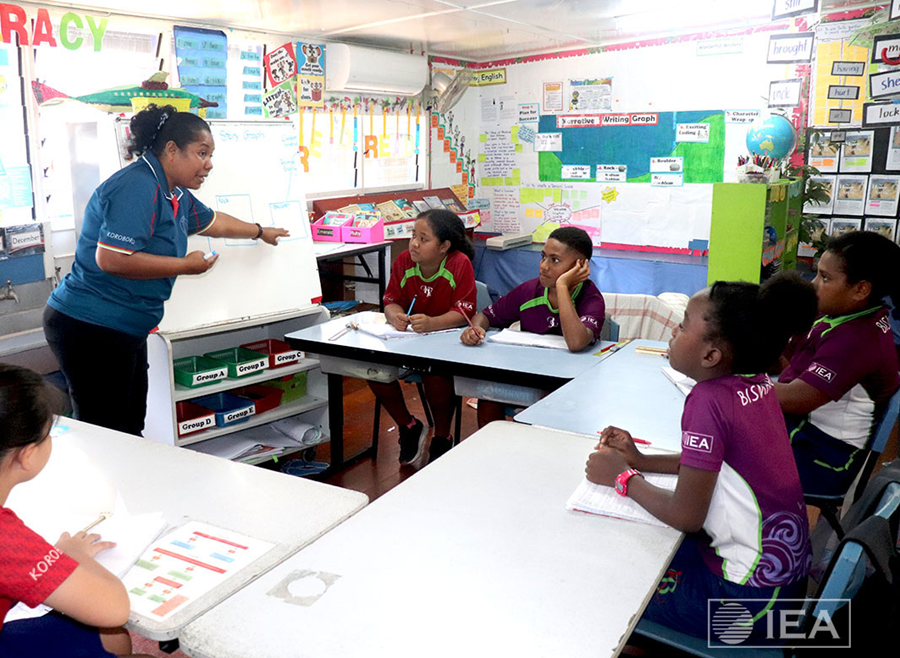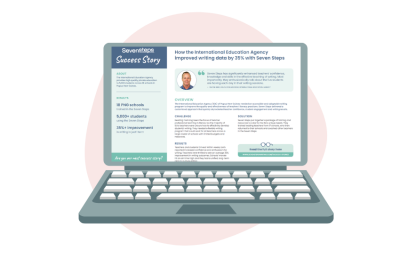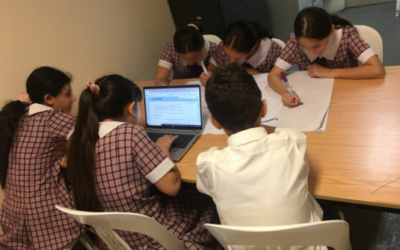How International Education Agency PNG rolled out Seven Steps across its 17 international schools – and saw an average 35% improvement in writing data
At a glance:

The craft skills of writing have significantly improved. Through the Seven Steps, students now enjoy and look forward to writing lessons.
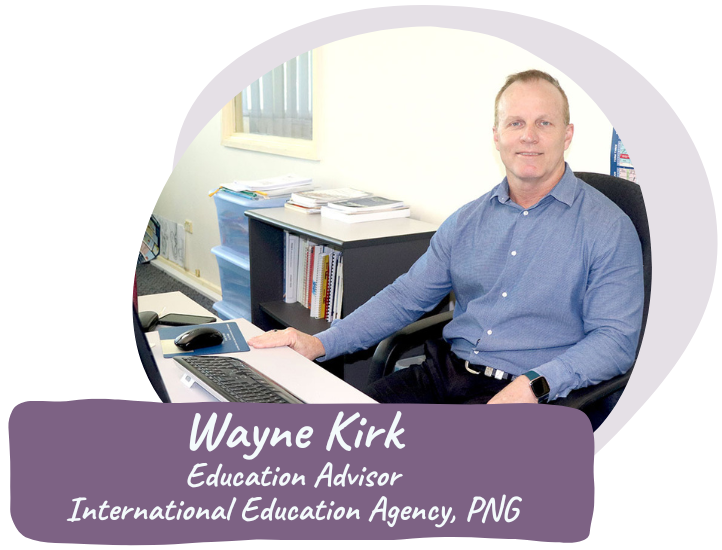
Challenge
Improving writing skills across a large cluster of schools with limited budgets and resources
Wayne Kirk spent 26 years with Education Queensland before joining the International Education Agency (IEA) as an Education Advisor – a role that supports 17 international schools across Papua New Guinea (PNG).
From the start, Kirk’s focus was on improving the quality and effectiveness of teachers’ literacy practices in PNG. While the teachers he worked with were committed and enthusiastic educators, they were not knowledgeable about or confident in writing instruction.
‘The majority were unsure about how to effectively develop students’ writing. For a long time, reading was the focus of teacher professional learning in literacy.’
Although all the schools Kirk works with are international schools, they mostly include local students and teachers; there are minimal ex-pats. These schools don’t have excessive budgets or reliable access to the resources many of us take for granted.
‘One of my biggest challenges is the limited internet access in schools. Teachers don’t always have the capacity to download useful resources,’ says Kirk.
Add to this the challenge of multi-age classrooms, in some instances with only two teachers from Foundation to Year 8.
Despite these challenges, Kirk could see that teachers were eager to take on board and apply new approaches. And this created the perfect opportunity to develop students’ writing skills by empowering their teachers.
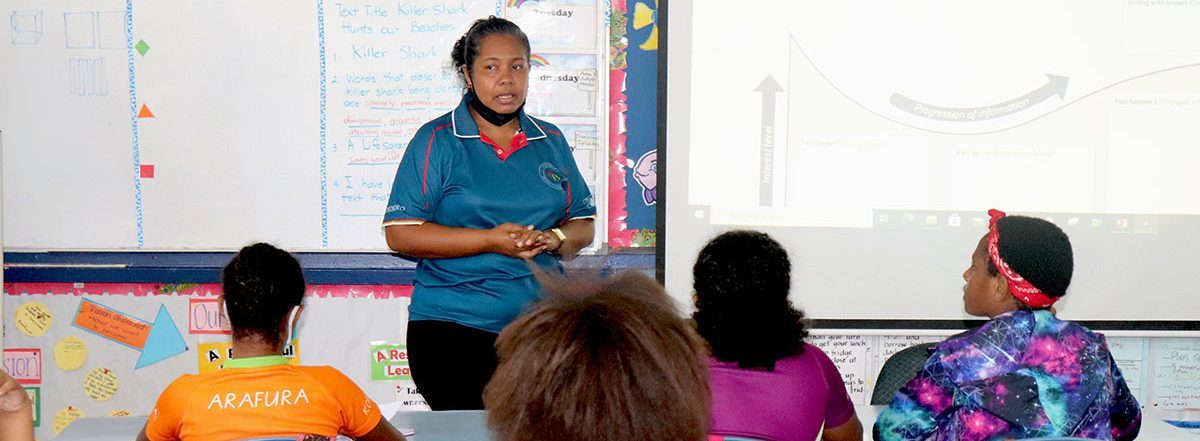
Solution
Train leading teachers in the Seven Steps, who then drive implementation in their schools
Kirk needed a writing program that was accessible and adaptable to the Papua New Guinea context. Having successfully used the Seven Steps in a range of Australian classrooms, he knew immediately that this flexible writing program was the solution that fit all their needs.
‘When I was teaching in Queensland, I discovered the Seven Steps writing program and went to a Workshop to learn about it. I was excited to introduce it to schools in Papua New Guinea.’
Seven Steps to Writing Success is Australia’s largest educator of writing literacy. Created by author and former teacher Jen McVeity, Seven Steps aims to make long-lasting change in literacy results – but also fill classrooms with laughter and enthusiasm for writing.
Seven Steps has trained over 45,000 teachers in Australia, who have then taught the Seven Steps to over 2 million Australian students. Some schools report up to a 35% increase in writing scores in one term.
Kirk invited the Seven Steps team to train leading teachers from 17 schools in Papua New Guinea, who then returned to their schools and trained other teachers in the Seven Steps.
Seven Steps put together a package of training and resources to cater to their unique needs. This included their online subscription platform, Teacher Hub, which all 17 schools are subscribed to.
‘Each school had their own implementation plan for narrative, persuasive and informative writing,’ says Kirk.
He observed classrooms and worked with curriculum leaders to identify areas of development, and even ran Seven Steps demonstration lessons for teachers to observe.
‘In some of our smallest schools, with a diverse group of students in each class, teachers differentiate through small group instruction to cater to the range of needs,’ Kirk explains.
Results
Increased teacher confidence, more enthusiastic students and a 35% boost to writing outcomes
Within weeks of implementing the Seven Steps program, writing results began to soar. Kirk’s ambitious vision had paid off.
Kundiawa International School’s results improved by 69%. The Year 8 students outperformed all other schools in their province, with some achieving near-perfect writing scores. And they’re not alone. At Koroboro International School, 734 students, from Years 1–6, achieved an overall writing improvement of 30%.
‘It has been a team effort from the start and the results we have achieved are largely due to the enthusiasm and commitment of the coaches in each of the schools/school clusters,’ claims Kirk.
This shift in engagement and results has not only boosted teacher confidence, it has also motivated Kirk to continue his work with schools in Papua New Guinea.
‘We look forward to the ongoing improvement of student writing across all IEA schools as we continue to refine and strengthen our application of Seven Steps processes and techniques as the key strategy in our pedagogical approach.’
Wayne concludes:
Seven Steps has significantly enhanced teachers’ confidence, knowledge and skills in the effective teaching of writing. Wherever I travel, teachers are eager to share their class displays and samples of students’ writing. Most importantly, they enthusiastically talk about the fun and enjoyment students are having each day in their writing sessions.
Share this story with your school
Download this snapshot of the International Education Agency’s story of writing improvement.
Want to see similar results in your school?
We can work with you to create a school-wide approach that addresses your school’s specific needs. Learn about our training and resources packages here, or request an instant quote.

